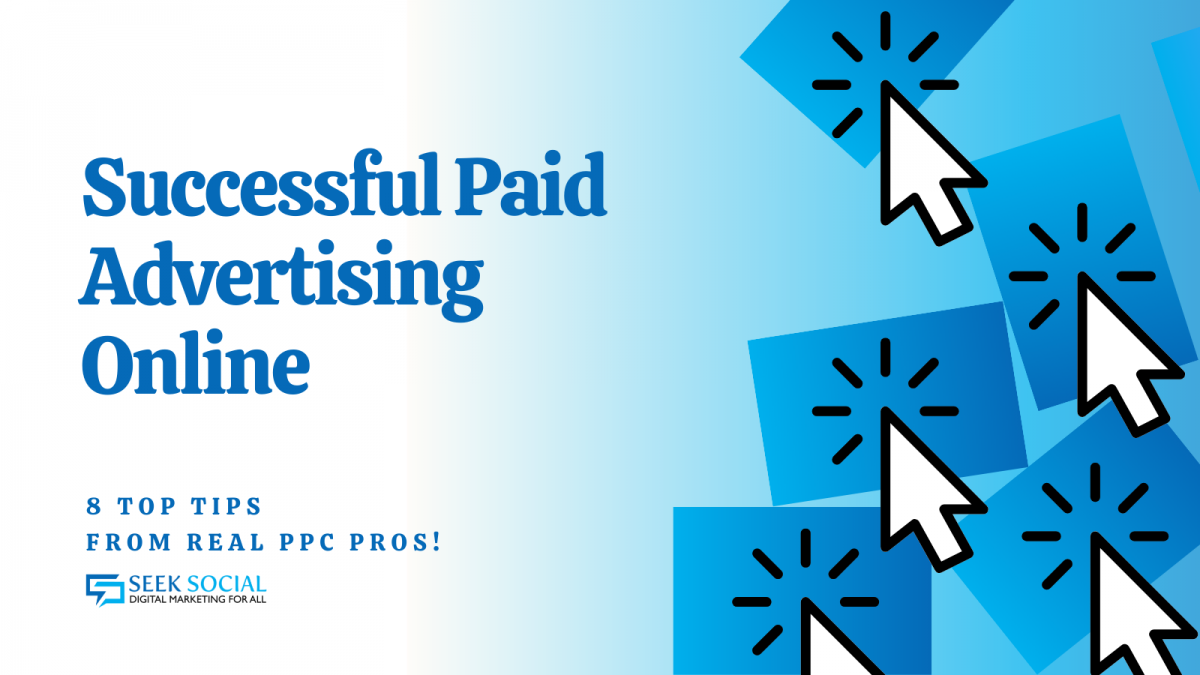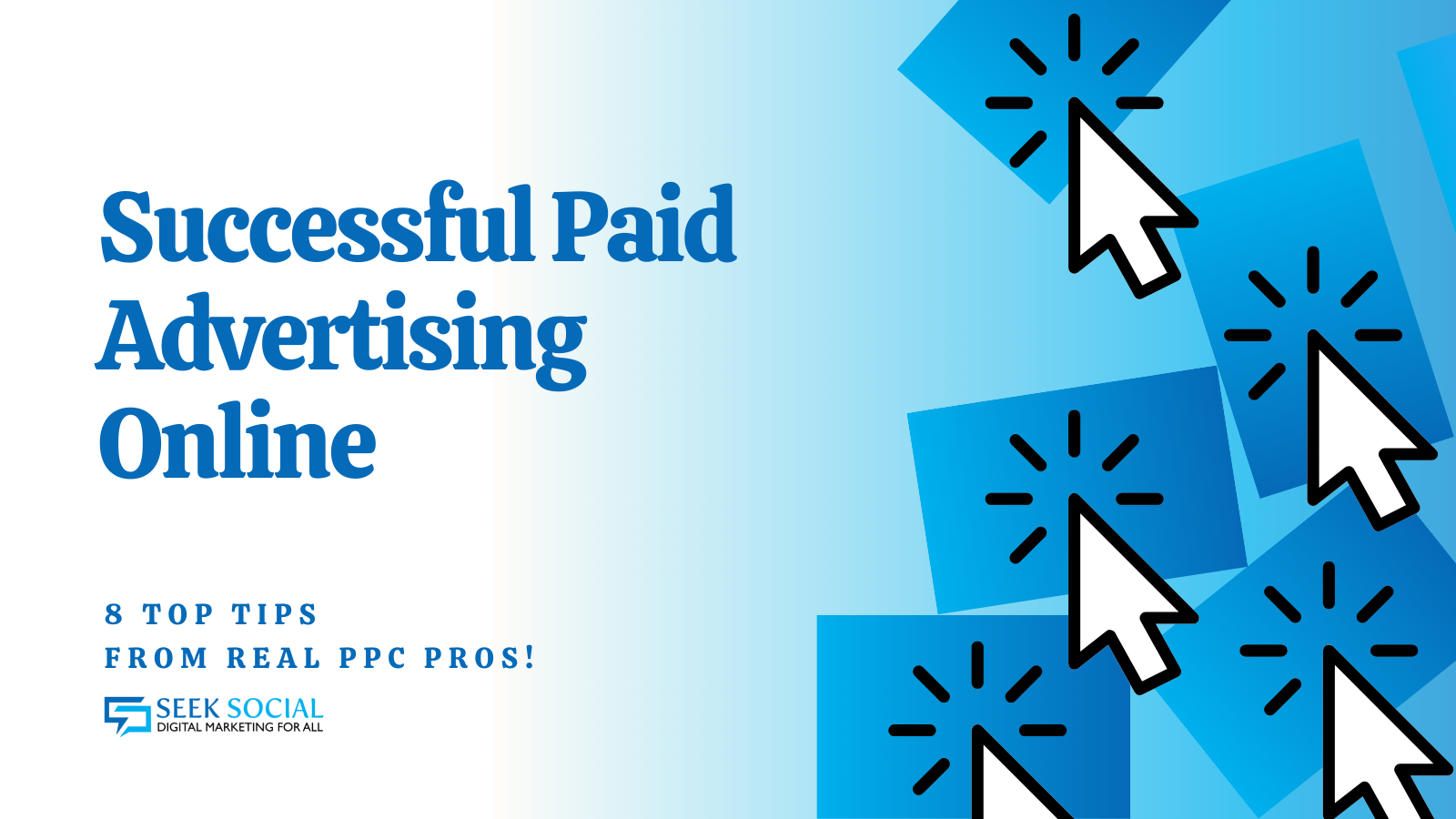25 October 2021
8 Expert Tips for Top-Notch Paid Advertising Online
In the dynamic landscape of digital marketing, mastering the art of paid advertising online is pivotal for businesses striving to stand out in the virtual crowd. As the experts at Seek Social, we’re eager to share invaluable tips from our seasoned PPC pros. This comprehensive guide unveils strategies that can elevate your online presence and drive meaningful results, ensuring your business thrives in the competitive digital arena.
 1. Understanding Your Audience
1. Understanding Your Audience
In the world of paid advertising online, knowing your audience is paramount. Thorough research to understand demographics, interests, and online behaviours is key. This knowledge forms the bedrock of a successful paid advertising campaign.
Know Your Target Demographics
Dive deep into analytics tools to discern age groups, geographic locations, and interests of your audience. This insight enables tailoring ads that resonate, creating a more personalised experience and increasing the likelihood of conversions.
2. Crafting Engaging Ad Copy
Compelling ad copy is the heartbeat of any paid advertising online. Tailor messages to resonate with your audience’s pain points and desires. Utilise persuasive language and a clear call-to-action to encourage clicks and conversions.
The Power of Persuasion
Crafting persuasive ad copy involves storytelling that connects emotionally with your audience. Address their challenges, offer solutions, and create a sense of urgency. A compelling narrative can captivate your audience, increasing the chances of them taking the desired action.
3. Strategic Keyword Selection
A well-researched keyword strategy is the backbone of successful paid advertising online. Utilise tools to identify high-performing keywords relevant to your business. Regularly update and refine your keyword list based on performance data.
Unveiling the Right Keywords
Beyond basic keyword research, consider user intent and long-tail keywords. This approach ensures that your ads are not only visible but also highly relevant to users actively seeking your products or services.
4. Optimising Landing Pages

Seamless User Experience
A seamless user experience involves not only responsive design but also clear navigation and relevant content. Minimise load times and ensure that the landing page delivers on the promises made in the ad, increasing the likelihood of conversions.
5. Implementing Ad Extensions
Take advantage of ad extensions to provide additional information to potential customers. Whether it’s site links, callouts, or structured snippets, these extensions enhance your ad’s visibility and provide more value to users.
Boosting Visibility
Ad extensions not only provide additional information but also make your ads more prominent on the search results page. Use them strategically to highlight unique selling propositions, promotions, and other relevant details.
6. Monitoring and Adjusting in Real-Time
Stay on top of your campaign’s performance by regularly monitoring key metrics. Use real-time data to identify trends and adjust your strategy promptly. This agility ensures you make the most of your advertising budget.
Dynamic Campaign Management
Digital landscapes evolve rapidly, and so should your paid advertising online strategy. Regularly check performance metrics such as click-through rates, conversion rates, and cost per conversion. Use this data to adjust bids, refine targeting, and optimise ad creatives for ongoing success.
7. A/B Testing for Continuous Improvement
Don’t settle for the status quo. Conduct A/B tests to identify what resonates best with your audience. Experiment with different ad creatives, headlines, and calls-to-action to refine your approach continuously.
Experimenting for Success
A/B testing allows you to compare different elements of your ads to see which performs better. Test one variable at a time, whether it’s the headline, ad copy, or imagery. This iterative approach helps you fine-tune your campaigns for optimal performance over time.
8. Harnessing the Power of Remarketing
Implementing remarketing tactics keeps your brand in front of users who have interacted with your website. Craft personalised ads to re-engage these prospects, nurturing them towards conversion.
Staying Top of Mind
Remarketing is a powerful tool for staying on the radar of potential customers. Craft specific messages for users who have visited certain pages on your site but haven’t converted. Tailor your approach to their previous interactions with your brand.
Frequently Asked Questions
How can I determine the success of my paid advertising online?
Track key performance indicators (KPIs) such as click-through rates, conversion rates, and return on ad spend (ROAS). Analysing these metrics provides insights into your paid advertising online’s effectiveness.
Is paid advertising online suitable for small businesses?
Yes, paid advertising online can be tailored to fit any budget. With strategic planning and targeting, small businesses can achieve significant results.
What role do visuals play in paid advertising online?
Visual elements, such as high-quality images and engaging videos, can capture attention and boost the effectiveness of your ads. Incorporate visuals that align with your brand and evoke the desired emotions.
Conclusion
In the dynamic landscape of digital marketing, mastering paid advertising online is a game-changer. Seek Social’s PPC pros have shared these eight tips to guide you towards success. To take your online presence to new heights, contact us today. Our expertise extends beyond PPC, encompassing SEO, local and global SEO, on-page and off-page SEO, eCommerce SEO, content marketing, social media marketing, email marketing, web development, web design, graphic design, and white label services.
Connect with us on social media – follow us on Facebook, Twitter, LinkedIn, and Instagram. For personalised insights and strategies, reach out to Seek Social. Let’s elevate your digital presence together. Contact us for a consultation tailored to your business needs, and discover how we can integrate the power of paid advertising with a holistic digital marketing approach.




















